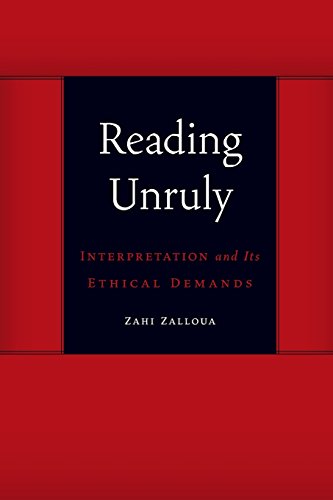

Most ebook files are in PDF format, so you can easily read them using various software such as Foxit Reader or directly on the Google Chrome browser.
Some ebook files are released by publishers in other formats such as .awz, .mobi, .epub, .fb2, etc. You may need to install specific software to read these formats on mobile/PC, such as Calibre.
Please read the tutorial at this link: https://ebookbell.com/faq
We offer FREE conversion to the popular formats you request; however, this may take some time. Therefore, right after payment, please email us, and we will try to provide the service as quickly as possible.
For some exceptional file formats or broken links (if any), please refrain from opening any disputes. Instead, email us first, and we will try to assist within a maximum of 6 hours.
EbookBell Team

4.3
8 reviewsDrawing on literary theory and canonical French literature, Reading Unruly examines unruliness as both an aesthetic category and a mode of reading conceived as ethical response. Zahi Zalloua argues that when faced with an unruly work of art, readers confront an ethical double bind, hesitating then between the two conflicting injunctions of either thematizing (making sense) of the literary work, or attending to its aesthetic alterity or unreadability.
Creatively hesitating between incommensurable demands (to interpret but not to translate back into familiar terms), ethical readers are invited to cultivate an appreciation for the unruly, to curb the desire for hermeneutic mastery without simultaneously renouncing meaning or the interpretive endeavor as such. Examining French texts from Montaigne’s sixteenth-century Essays to Diderot’s fictional dialogue Rameau’s Nephew and Baudelaire’s prose poems The Spleen of Paris, to the more recent works of Jean-Paul Sartre’s Nausea, Alain Robbe-Grillet’s Jealousy, and Marguerite Duras’s The Ravishing of Lol Stein, Reading Unruly demonstrates that in such an approach to literature and theory, reading itself becomes a desire for more, an ethical and aesthetic desire to prolong rather than to arrest the act of interpretation.